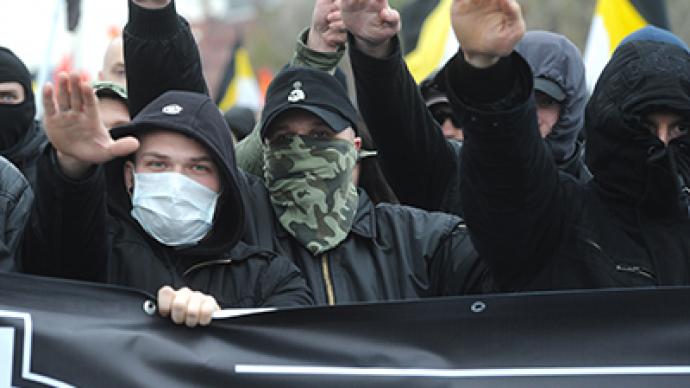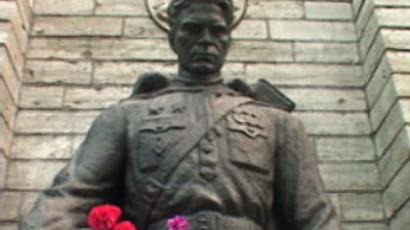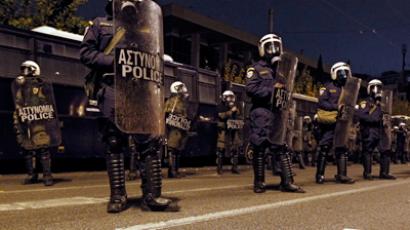Nazism nyet? Not yet

Moscow is dismayed after a number of countries failed to support a resolution designed to fight against the glorification of Nazism.
The Foreign Ministry said Moscow regrets that the United States, the European Union and Ukraine have refused to support a UN General Assembly resolution aimed at battling the modern scourge of Nazism and other racist movements, the Russian Foreign Ministry said on Tuesday."We are perplexed and upset that the United States and Canada were against, and EU states abstained, in the vote on the draft resolution, which gained the approval of the majority of UN member countries," the ministry said on its website.Equally disturbing from Moscow’s point of view is that Ukraine, which bore the brunt of Hitler’s Eastern blitzkrieg during World War II, chose not support the document."The position of Ukraine, which once again preferred to abstain from condemning Nazism glorification instead of paying tribute to the memory of those who died fighting that evil is also regrettable," the ministry said. The ministry said it hopes the resolution will send a clear message to countries which it says should have taken resolute measures long ago to suppress the intensified attempts at glorifying Nazism, including Waffen SS veterans.The resolution was adopted at a meeting of the Third Committee of the UN General Assembly in New York City at the initiative of Russia, in coordination with the delegations of another 42 countries. Some 120 states voted in support of the resolution, three were against (the US, Canada and the Marshall Islands) and 57 abstained. The document expressed profound concern over the increase of extremist movements and political parties advocating “racism, ethno-centrism and xenophobia.” The resolution condemned glorification of the Nazi movement and Waffen SS veterans through monuments and public events that contain Nazi and neo-Nazi propaganda. Such actions defile the memory of the numerous victims of the Nazis, have a negative effect on the younger generation and are at variance with the stated commitments of UN member states, it stated. Of particular importance is the provision that condemns ongoing attempts to vandalize or destroy monuments in honor of those who fought against Hitler, as well as efforts to conduct illegal exhumation and reburial of their remains, the ministry statement concluded. Russia, which lost millions of soldiers and civilians in the fight against Nazism, has criticized a number of controversial moves by foreign governments. In 2007, for example, Estonia made the decision to relocate the Bronze Soldier, which marked the graves of several Soviet soldiers, from central Tallinn to the nearby Tallinn Military Cemetery.The move incited mass riots in the Estonian capital that resulted in the death of a Russian-native protester.The Russian draft was co-authored by Belarus, Tajikistan, Turkmenistan, Uzbekistan, Kazakhstan, Kyrgyzstan, Angola, Bangladesh, Benin, Bolivia, Venezuela, Vietnam, Gabon, Guinea, Zimbabwe, India, Iraq, Iran, North Korea, Cote d'Ivoire, Cuba, Laos, Lebanon, Mauritania, Myanmar, Namibia, Niger, Nigeria, Nicaragua, Pakistan, Rwanda, the Seychelles, Syria, Sudan, Tanzania, Uganda, Sri Lanka, Equatorial Guinea, Eritrea, Ethiopia and South Sudan.














